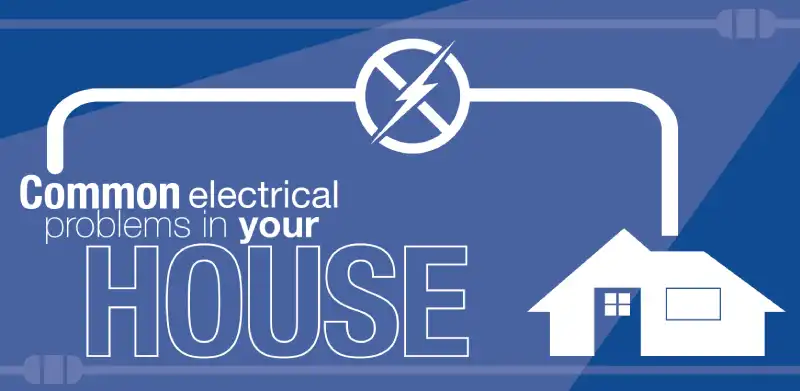
Mr. Electric highlights common electrical problems and solutions for homeowners.
|
Have you been disregarding these common electrical problems around your home? You may be able to fix it yourself!
Common Electrical Problems in Your House: Harmless or Hazardous?
Harmless
Loose Outlet Plug: Turn off the breaker. Double check for voltage to the outlet (use a volt meter or plug something in). Unscrew the cover plate and add outlet shims until the outlet is flush with the wall.
Broken Light Switch: Turn off the circuit breaker (the light will go out when you choose the right one). Use a flathead screwdriver to remove the faceplate and a Phillips head to remove the light switch. Test the two wires connected to the screw for electricity. If it’s safe, disconnect and reassemble the light switch.
Simple Short Circuit: Some electrical appliances, such as hairdryers, can frequently trip or short circuits. Reset the breaker. Repeated occurrences with the same appliance indicate it’s the appliance — not the electrical system. Without the appliance? A short in the wiring or receptacle needs to be addressed by a pro.
Cut or Damaged Extension Cord: Unplug both ends. Cut off the old plug. Gently score and peel back the insulation jacket. Strip each wire with a wire stripper, twisting each wire tightly at the end. Screw them into the back of the plug: black to gold; white to the silver screw; green to the green screw. Then close the plug and secure the wires. Cut in the middle? Purchase extra ends and turn the damaged cord into two new ones.
Hazardous
Flickering or Dimming Lights: This could be a sign of a poor connection and can lead to eventual arcing — loose/corroded connections making intermittent contact that could result in sparking, overheating, and fire.
Light Bulbs Burn Out Frequently: If you’re experience frequent bulb blowouts, it could be more serious than overuse. You may have a loose connection in the socket or circuit. Recessed lights that frequently fail? Nearby insulation could be causing overheating and these fixtures are designed to shut off to prevent fire.
Dead Outlets: Dead outlets can result from a tripped poor connection (and possible arcing), or a tripped breaker due to excessive heat buildup resulting in melted wires or outlets.
Warm Outlets or Switches: Unless it is a dimming switch, warm outlets are as a serious safety concern and should be addressed by a pro immediately.
Frequently Tripping Breakers: Usually a sign the circuit is overloaded and using too much electricity. You should add a circuit or consider upgrading your electrical service.
Electrical problems have you in over your head?
Don’t be a DIY daredevil. Dealing with electrical is not like dealing with dry wall - electrical problems can bite! And while drywall can be cheaply and easily replaced, you cannot. If you don’t have the tools or expertise necessary to tackle these common electrical problems and need professional electrical services, Mr. Electric® can help. Don’t ignore potential dangers. Contact Mr. Electric for help today.
